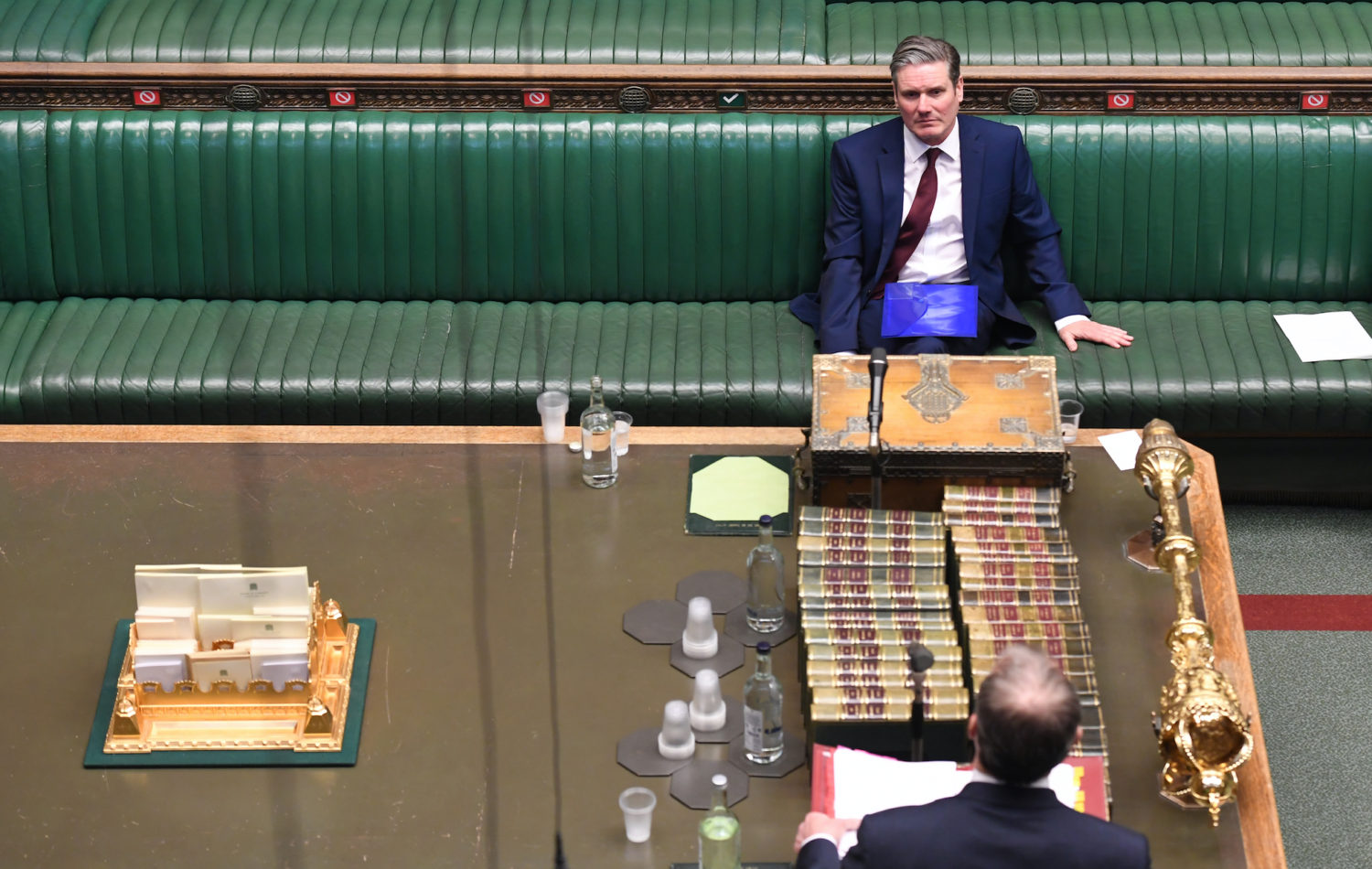Keir’s Next Year: the results
How can Keir Starmer articulate a vision that wins support for change? Kate Murray looks at the responses to our recent survey for answers.
If there is one thing last week’s elections showed us, it is the scale of the challenge Labour now faces. Although there were some heartening results, in Wales and in the south of England particularly, the picture was bleak in many former Labour strongholds. As activists, pollsters and commentators have picked apart the results, one clear theme has emerged: many voters are unclear about exactly what the party stands for. How can Keir Starmer articulate a vision that wins support for change?
Help in answering that question is to be found in the responses to a recent Fabian Society survey, which we called ‘Keir’s Next Year’. We asked people to tell us what Starmer and the Labour party should do over the next 12 months to win over the voters. Which single policy could transform the country? What is the most important thing Labour could do to win back voters who have rejected it? And which policy from the 2019 manifesto does Labour need to ditch?
We had thousands of responses, with a huge range of thoughtful ideas to rebuild a connection with the voters. Many of the respondents supported big ideas like electoral reform or a green new deal, but there were a range of other policy suggestions for Labour to consider. Many of those who took part were keen for the party to come together to allow it to mount a challenge in the next general election. The survey did, however, underline that bringing different wings of the party together remains challenging: a significant number of responses were from party supporters or members still angry over Jeremy Corbyn’s loss of the Labour whip. Here we present a selection of respondents’ views on what Labour needs to do next if it is to have a chance of winning power again.
Name one new policy Labour should back that could transform the country
The most popular suggestions were electoral reform, a universal basic income and a green new deal. Many backed taking action on housing, with more affordable housing a top priority as well as rent caps and more support for energy-efficient housing also receiving significant backing. There was also support for the idea of a national care service. Other policy ideas included reform of drugs laws, investment in public transport and in skills training – and closer ties with the EU, showing that within Labour ranks the Brexit issue is unlikely to go away any time soon.
You said:
“Electoral reform. Abolish first past the post for good. More representative government is desperately needed.”
“An alliance with the Lib Dems and Greens. As a Green party member, I’ve been lending you guys my vote. No more, unless you give me something in return.”
“Set a target for councils to build one million homes a year.”
“Real jobs in green technology.”
“Devolution especially across the north.”
“Rebuild the welfare state so it’s fit for the 21st century.”
Name one thing Labour should do to reconnect with voters who rejected the party in 2019
Again there were many mentions of specific policies such as the introduction of proportional representation, reversing Brexit and action on climate change, but also a focus on listening to people who turned away from Labour, asking them about their concerns and engaging with them.
You said:
“Tell us all what kind of country you aspire for us to be – give us a vision of a better future.”
“Proactively engage with [people] to understand their views, issues and concerns. Let’s be a more outward-looking Labour.”
“Hold Johnson and his lies to account whilst offering bold changes to the status quo that would actually benefit the whole country.”
“Create real jobs in the Leave-voting areas.”
“Make a real difference locally. Labour councils hold a lot of power.”
“Send leaflets to constituents in lost seats showing the complaints people had and how Labour has changed since.”
“Big picture infrastructure redevelopment in left-behind communities.”
Name one commitment from the 2019 Labour manifesto that the party should abandon
There were many votes here for the pledge to hold a second Brexit referendum, as well as the free broadband and renationalisation policies.
You said:
“Second referendum – the people have spoken.”
“Free broadband – too many people believed it to be unaffordable.”
“Abolish charitable status for private schools. This needs to be a long-term aim but other things need to happen first.”
“I don’t think any of the manifesto was a problem. The problems are far deeper.
“Not so much about abandoning one commitment as ending the lack of clarity for funding all of the commitments.”
“Less is more – there were too many policies.”
Name one idea for creating more unity and harmony in the Labour movement
Unity across Labour is still a challenge, but there is clearly an appetite for the party to come together. Many of our respondents called for respectful debate across the party and an end to factional squabbling.
You said:
“Remind everyone who they are fighting – that is the Tories, not each other.”
“Labour needs to discuss tribalism: what it is, why it is nefarious and how all members need to work against it.”
“Labour citizens’ assemblies.”
“Joint project teams in all of the main policy areas involving the most talented from left, right and centre.”
“Accept that Labour is a broad church instead of attempting to marginalise those who are not 100 per cent in agreement with the current leadership.”
“New standards for members’ behaviour.”
“It’s a broad membership so you’re going to have differences. Use them to appeal to a wider electorate.”
“A progressive alliance would help make Labour more collaborative.”
Name one Labour MP the party should make more use of
There is clearly a lot of talent on the Labour benches and many MPs got a mention. There was particular support for, among others, David Lammy, Hilary Benn, Rosena Allin-Khan, Yvette Cooper and Clive Lewis.
You said:
“Unfortunately my two obvious candidates are not MPs – Andy Burnham and Frances O’Grady.”
“Dan Jarvis – young, statesmanlike, hardworking, reasonable.”
“Jess Phillips. Her forthright manner is what’s needed to tell the current government exactly how it is.”
“Ian Murray. If we don’t pay attention to Scotland we have lost any real chance of ever achieving power again.”
“Toby Perkins. I have a lot of admiration for him after hearing my dad was shouting at him for nearly half an hour in the street when he came round canvassing… He took it on the chin.”
“Nadia Whittome. She is a true working-class MP with an understanding and experience of the care sector.”
“John McDonnell – the Tories are using many of his 2019 manifesto pledges!”
Image credit: UK Parliament/Flickr

